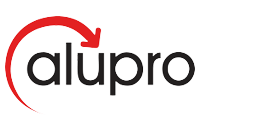Q&A with Andy Doran, chairman of Alupro
In January, Andy Doran – Senior Manager, Sustainability & Recycling Development at Novelis Europe – was appointed Chairman of Alupro, the aluminium packaging recycling organisation. Here, he explains why public opinion is changing when it comes to the circular economy and why 2023 will prove a transformational year for the UK’s packaging and recycling sectors.
Q – Tell us a little more about your career to date – where did it all start, what have the highlights been and why?
Having worked in recycling and sustainability for more than 30 years, I’ve seen the industry grow, develop and thrive. I first worked in local and central government, before taking up a role with Defra. In 2006, I moved to Novelis – the world’s largest aluminium recycler – and recently celebrated my 16th anniversary with the business.
During this time, I’ve enjoyed countless highlights. From discussing legislative change with recycling ministers and opening world-leading facilities, to seeing the aluminium beverage can recycling rate surpass 80%, there’s never a dull moment! Through it all, I’ve thoroughly enjoyed continuing to play a leading role in driving Europe’s booming aluminium sector.
Q – Have you seen public perceptions dramatically change towards packaging materials during this time?
When it comes to aluminium, perceptions haven’t changed much. It remains a hugely popular material of choice for both manufacturers and consumers, renowned for its infinite recyclability and superior properties. However, what I have seen change is public perception when it comes to the importance of recycling – as well as consumer pushback when it comes to single use materials.
The sector has been impacted greatly by what many are calling the ‘Blue Planet effect’. The sheer scale of our global plastic challenge highlighted by Sir David Attenborough is redefining how people think about packaging. The aluminium sector is benefitting in result – with consumers recycling more and the supply chain prioritising infinitely recyclable aluminium above other packaging materials.
Q – What have been the major drivers for this? Government communication and legislation?
Communication and education has proven pivotal to both raising awareness of material recyclability, as well as the importance of recycling used packaging. This messaging has come from various sources across the supply chain, including the pioneering work of Alupro and its countless initiatives – Every Can Counts and MetalMatters, to name but a few.
As the UK strives to further increase recycling rates, education will prove paramount to accelerating traction and providing access to the harder to reach fractions. Communication and incentivisation remains key.
Q – Why did you decide to take up the chair position at Alupro? What does the role entail?
I’ve been a board member of Alupro since 2006 and have watched the team grow and flourish. Taking up the chair role gives me the opportunity to further share my leadership, advice, knowledge and support with the hugely talented Alupro team. It also reflects the future vision of Novelis and our strong presence in the UK.
Q – What are your key predictions for the aluminium packaging sector in 2023? Will there be hurdles for the industry to overcome as well?
It’s fair to say that most businesses have experienced a challenging time over the past few years. Hopefully, however, we’re coming to the end of the tunnel and have seen the worst of the COVID-19 pandemic. In 2023, I expect demand for aluminium packaging to remain high, consumption levels to continue and recycling rates to remain strong.
There are obviously bumps in the road to overcome regarding data and reporting, but I see 2023 as a springboard for the future. With new legislation looming, there’s a huge opportunity when it comes to aluminium packaging recycling, but well-designed systems are paramount to make it ‘stick’.
Q – What one thing would help to further increase aluminium packaging recycling rates in the UK? Is this an achievable goal?
Robust legislation has the opportunity to revolutionise aluminium packaging recycling rates. It’s essential that any change is well-designed, well-managed and effectively deployed, however, as failing to do so can deliver hugely negative effects – most notably costing a lot of money to implement but failing to deliver much value.
Q – Will we ever see aluminium packaging recycling rates reach 100% (or as close to as feasibly possible)? What would help us to achieve this?
Aluminium packaging recycling has come a long way since I started out in the sector. Personally, I believe that the UK is on a robust path when it comes to further improvement and, with better infrastructure, education and incentives, could reach the levels seen in some of the world’s most high-performing countries.
For example, with an end of life collection rate of almost 99% (2021), Brazil sets the standards in aluminium can recycling, as well as being the world’s third largest market by volume. If it’s possible in Brazil, why isn’t it possible in the UK?
Q – Can you give us an exclusive? Any incentives, initiatives or activations that Alupro will launch in 2023 that could prove game-changing for the industry?
There’s so much in the Alupro pipeline for 2023, so I don’t want to spoil any surprises. Keep an eye out, though – some of the work going on behind the scenes is set to really make a splash!
ENDS



